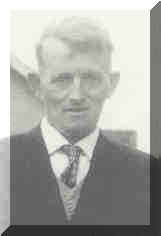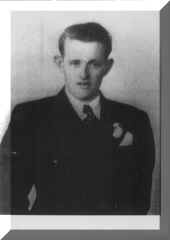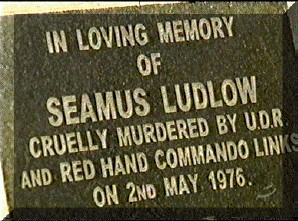The government is coming under increasing pressure to establish a public
judicial inquiry into the 1976 Loyalist killing of Dundalk man Seamus Ludlow
in order to fully probe allegations that the security forces colluded across
the Border to stifle police investigations into the death.
Government sources have confirmed newspaper reports last week that the
cabinet will meet “within weeks” to decide the type and terms of reference
for the fresh inquiry amid suggestions that the probe might concentrate on
events after 1979 when the Gardai were officially informed by the RUC of the
identities of the alleged perpetrators, a joint UDR-Red Hand Commando gang.
If the inquiry goes ahead it will the first ever to be held into the
Gardai’s handling of Northern Troubles-related activity and may have wider
implications for policing in the Republic.
Both the Ludlow family and the human rights group, British-Irish Rights
Watch (BIRW) have written to the Taoiseach asking that the inquiry be given
the widest possible powers. Jimmy Sharkey, a nephew of the dead man, said he
wanted to see a Flood or Moriarty-style tribunal set up.
“An independent, public inquiry dealing with all aspects of the case
going back to 1976 up to the present day and into the behaviour of the Gardai
and RUC in 1976 is what we want”, he said. “We want to know when was the
information about the killers given and how long after the murder and why
wasn’t it acted upon.”
BIRW director, Jane Winter said that the terms of reference must be drawn
widely to consider both the murder and any cover-up. She added: “The family
should also be allowed legal representation and if necessary legal aid to
participate in the inquiry. We welcome the news, but this has got to be the
right kind of inquiry”.
Seamus Ludlow was killed in May 1976 in circumstances that remained a
mystery for over 20 years. Both the IRA and British Army were falsely blamed
and it was only last March, following a Sunday Tribune report, that the
truth emerged. This was that Ludlow had been picked out, probably at random,
by a gang of UDR and Red Hand Commando Loyalists who had driven over the
Border apparently in search of victims.
A fresh Garda inquiry into the 1976 police investigation concluded that
although the names of the suspects had been given to Garda detectives by their
counterparts in Belfast the information was not acted upon. It is because of
this that the government is now considering a fresh inquiry.
The report, presented by Chief Superintendent Ted Murphy, is believed to
have concluded that it was as late as 1979 that this happened but this is
disputed by Ludlow family sources.
Four aspects of the original Garda investigation has led them to suspect
that it was the 1976 not 1979 probe that was flawed:
The fact that Gardai blamed the IRA for the killing allegedly because
Seamus Ludlow was an informer and despite strenuous denial from the group;
The fact that the Gardai divided the Ludlow family, and blunted their
determination to discover the truth, by telling separate members that other
family members had known about the planned killing beforehand and had possibly
betrayed Ludlow to the IRA;
The fact that the investigation was wound up suddenly and without
explanation after only three weeks;
The fact that one of the men present when Seamus Ludlow was killed, Paul
Hosking from Co Down, alleged last March that when he told the RUC Special
Branch all about the killing in 1987 he was told to forget the case as it was
“political”.
These have combined to feed suspicion that the Seamus Ludlow investigation
was obstructed to protect a British intelligence agent amongst one of the
gunmen. Four men were arrested by the RUC last year and their files are now
with the North’s Director of Public Prosecutions awaiting decision.

I Homepage I I Top I Press
Coverage I I BIRW Report I


